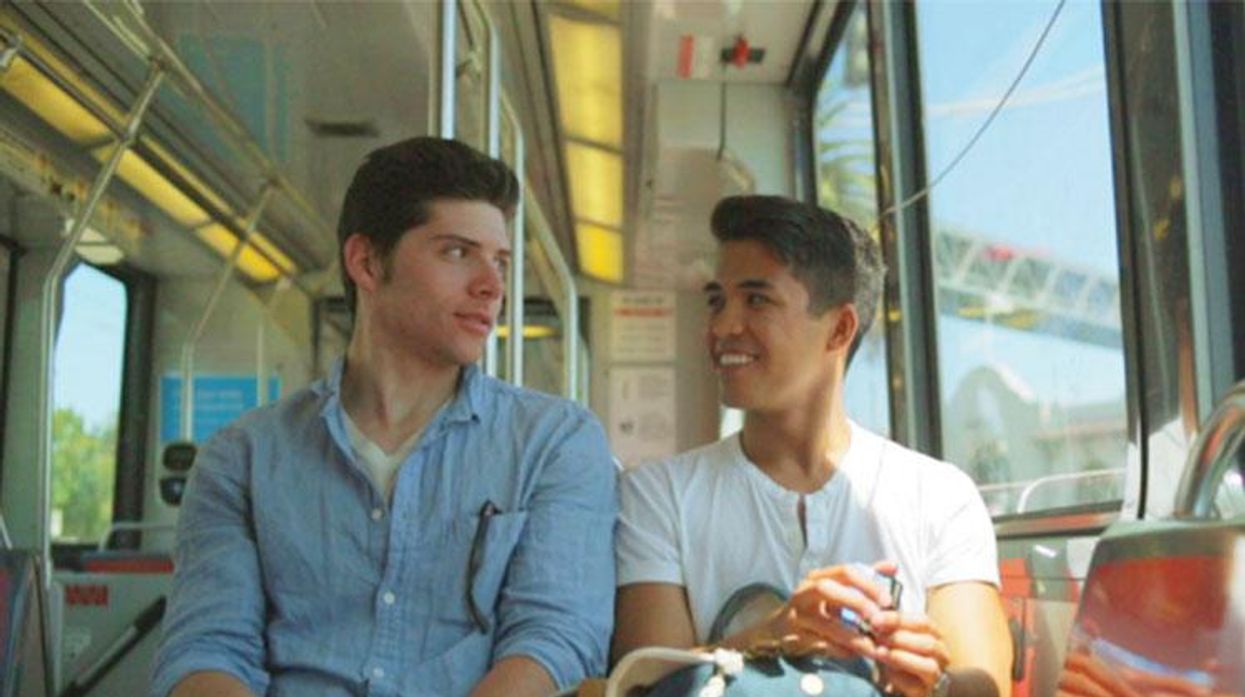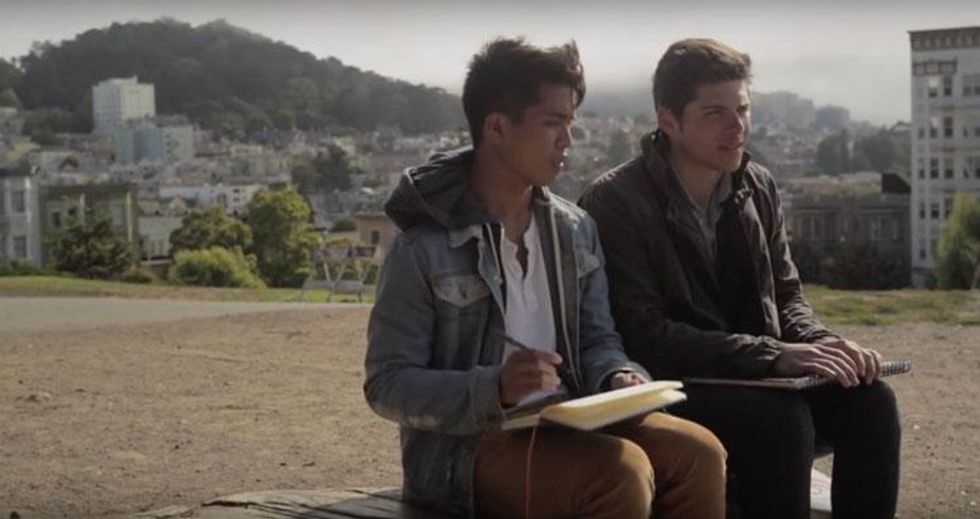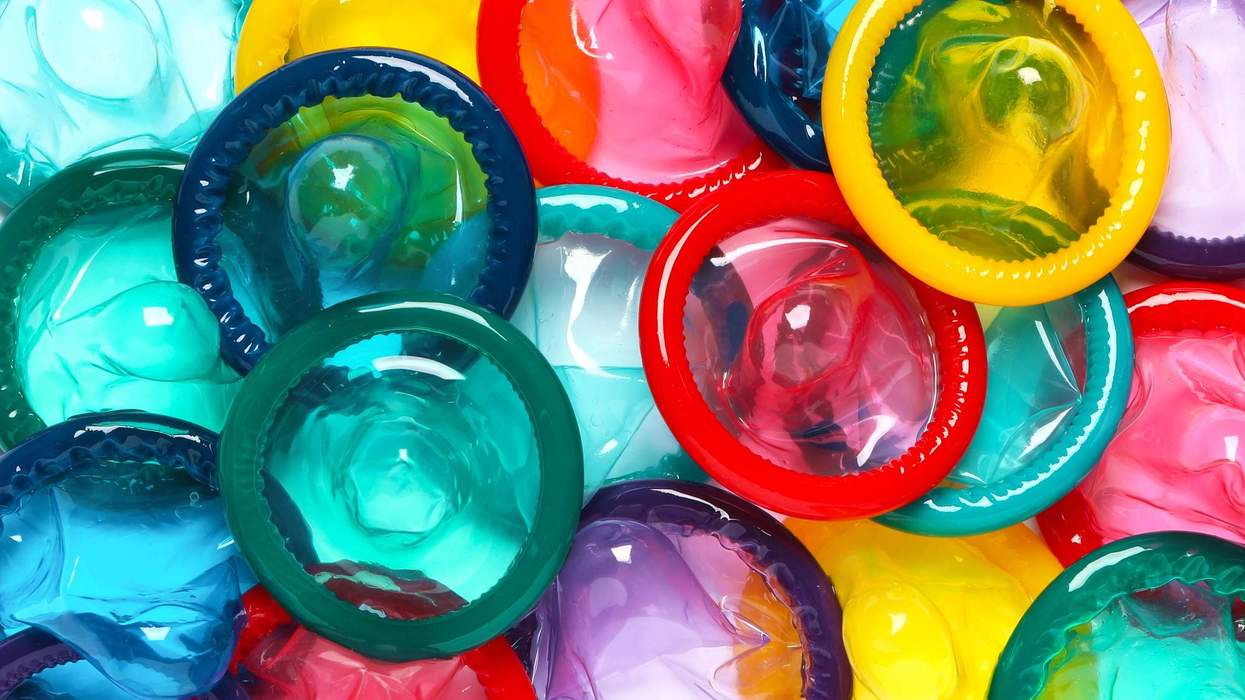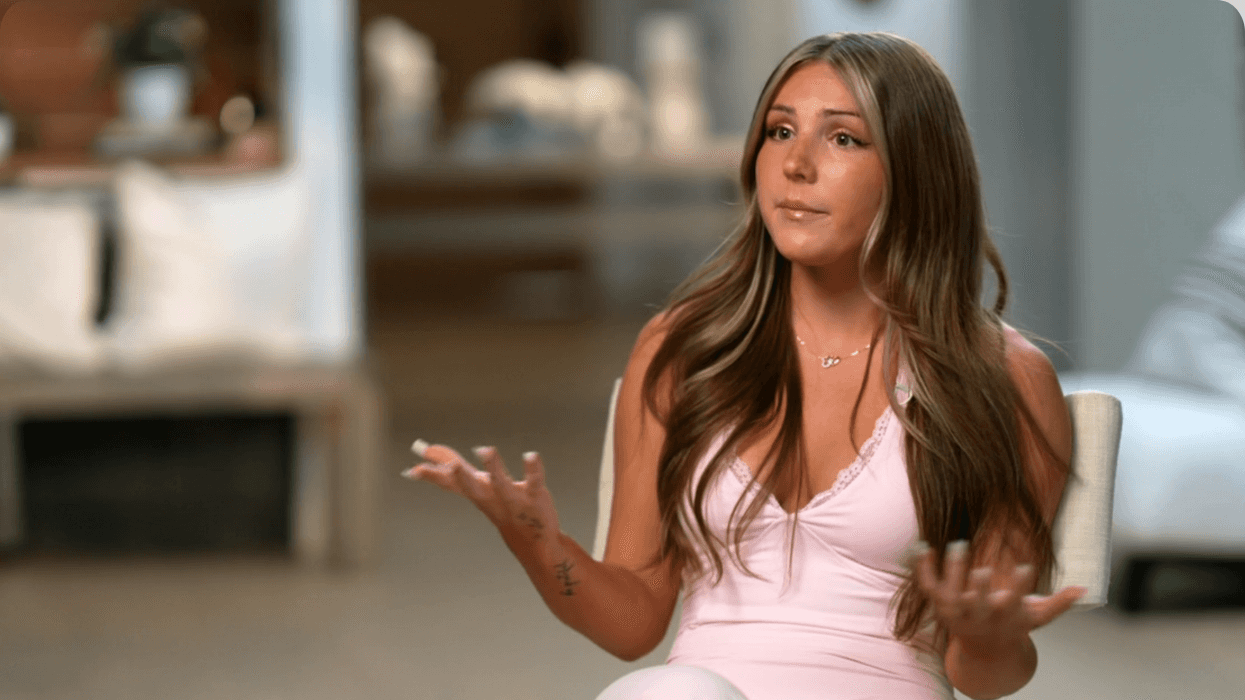"Where are all the queer people of color?" A question at the forefront of the minds of many directors and producers. Well, Curtis Casella and Kyle Cabral set to change that landscape in their new project, Paper Boys (launching today on Dekkoo, the global streaming platform for gay and queer men), where nearly three quarters of the cast and crew are Asian-American, African-America, Latino, or trans.
The series, which tells the story of Cole, who secretly moves to San Francisco under the guise of attending his straight best friend's engagement party because of his dead-end career and memories of a past fling in New York. Well, after he runs into the former fling in SF and his best friend reveals his engagement was an accident, their worlds ultimately unfold as they re-discover an old sketchbook of theirs and try to put their lives back together.
Here, we sat down with Casella to chat more about this unique story and how it's changing the LGBTQ storytelling landscape for good.
OUT: You self-funded the first two episodes of this series, why did you set out to create Paper Boys? What story were you trying to tell that was missing in LGBTQ film and television?
Curtis Casella: Kyle and I batted around a lot of ideas (by the way, you should enjoy that sports metaphor, because it's the only one I know how to make) when we were coming up with Paper Boys. We knew we wanted to make something that was a bit more exotic than your standard straight, so to speak, drama, which is what almost every gay show seems to be.
So we talked about making a show about a gay vigilante, and I very strongly wanted to make a gay musical, but Kyle rightly suggested that, since neither he nor I were composers or lyricists, that might be difficult. So we settled on the concept of Paper Boys, where Cole has a magical sketchbook. Kyle is also a talented artist, so it fit our abilities quite well.
Tell us about the reasoning and importance behind showcasing a gay-straight male friendship? You often don't see this story in media.
CC: The gay-straight friendship is somewhat autobiographical for both Kyle and me. Both of us have really close friends who are straight, and we felt like it was something we didn't see often enough in gay media. It's really interesting to see the vast differences in life experience between gay men and straight men. My best friend was having a hard time meeting friends and asked me how I made them when I moved back to San Francisco, and I said, well, I have Grindr, and gay bars, and circuit parties, and I just see people again and again and friendships come naturally. And he says, "yeah, I don't think that's going to work the same for me."
In some way, it was also aspirational. Like, if we could show a friendship that was platonic between a straight and gay man, it might normalize it to an extent that it's perhaps not normalized now. I think there is still an undercurrent of maybe tension in gay and straight relationships - like this feeling on the part of straight men that gay men might either threaten their masculinity, be secretly attracted to them, or both. And we wanted to show a friendship between two men that didn't have any of that. Where they were like brothers.
The cast is highly diverse. How important was it for you to represent a range of people from different backgrounds to tell this story?
CC: This was one of our most important goals. Kyle is Filipino, and we both have pretty diverse groups of friends, so we felt like it was essential to include a diverse cast in Paper Boys. First, we both were cognizant of the fact that people of color don't see themselves represented enough in media, so that was one facet. But this also allows us to address issues in the gay community that just wouldn't ring honest with a cast of white characters - like the racism that exists in dating and hookups, internalized homophobia that some still feel, and themes that white audiences - probably myself included - wouldn't even think about because of the privilege we're born with.
That's also why having a diverse cast is only half of it. I know that there are some things that I can't see, or that seem innocuous to me but may not be to people with different lived experiences from me. So having writers, editors, cinematographers of color is essential too. We had one line in the 6th episode - which we'd written before we'd cast our series - where Charlie says that Daren and Rebecca would have had beautiful children. It was still there after a couple of rewrites, and when we went into rehearsals, the actress who played Rebecca pointed out that she often had people say that to her and her husband (who was white), and it had a clearly racial tinge to it. That honestly never occurred to me, and we decided to drop the line from the scene because it didn't advance the story, and wasn't true to a character who, having grown up with Rebecca, would have seen some of the racism that Rebecca experienced and would not have wanted to perpetuate that.
What do you hope viewers will leave with when they finish watching the series? A key message?
CC: There are so many themes we want to explore, so I don't know if there's any one key message that we want viewers to leave the series with beyond that it feels honest. That these characters are being honest to themselves eventually. Because I think that's what a lot of us have struggled with as gay men -- and still struggle with. That we've had to come to terms with a facet of ourselves that a society built for heterosexuals has forced us to conceal.
We're obviously not going to represent all of the facets of the gay experience in one show, no matter how diverse our cast is. But I hope that at least it feels like those facets we do represent feel real. Or at least as real as a show with magic in it can feel.
We do want to use the concept of the Cole sketchbook to explore the idea that someone might have control over the unpredictability of life. Will Cole be happier with that power? We want our audience to take something away from that thought experiment.
And then also, I always hope that the audience will walk away thinking, "That show wasn't awful."
Dekkoo is changing the way queer men experience content, what has it been like working with the streaming service?
It's been amazing working with Dekkoo - they've been incredibly accommodating and want to let us tell our story the way we want to tell it. Plus, I think having a service that's targeted towards queer men is important. Netflix is great, but much of the gay content on there is of the B-movie variety, with a few notable exceptions. So it's great to have a platform like Dekkoo, especially one that works with independent filmmakers like us.
Check out the trailer for the series below, and catch it all on Dekkoo.






























